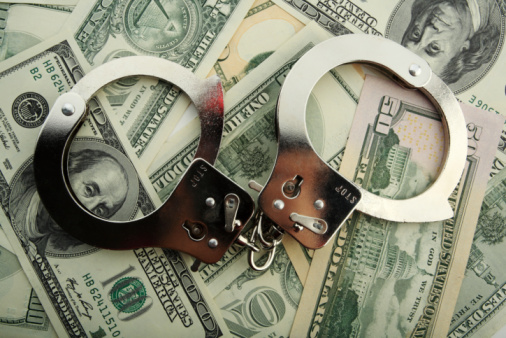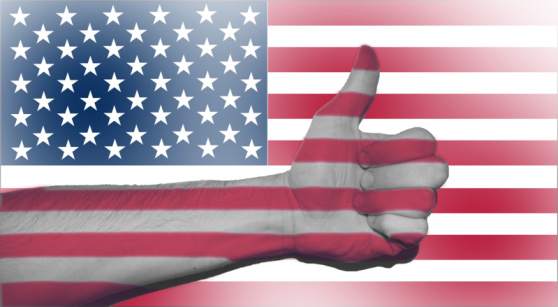Hiding Money in the U. S. of A.
Want to hide money from the tax man? Come to America – Hiding Money is big big business.
“…the U.S. system welcomes foreigners with arms wide open and eyes wide shut.”
A few days ago, I met with the president of a large international investment bank in Panama. We’ve been friends for a number of years and went to one of my favorite places for dinner, Chalet Suizo – 1985, in El Cangrejo. After a few drinks, we got to talking about money laundering and the U.S.’s attempts to “stop the evil and protect us from terrorists.”
My friend’s view was that the vast majority of money laundering is done in the United States by American banks. He believes that 80% to 90% of the money hidden from international tax authorities is invested in the United States, and that there is nothing these foreign governments can do to get to it. Most of this money is from Europe, but a great deal comes from Mexico, Venezuela, Colombia, and other parts of Latin America.
Every international banker I’ve ever met will agree with this assessment, as do a number of scholarly studies. In fact, some estimate the amount of money hidden in the U.S. in the billions of dollars. It represents a very significant portion of fund held in U.S. dollars, and the liquid capital of many prominent banks.
While the Department of Justice is aggressively going after its citizens for not paying up, the government is making it easier to bring in untaxed money and protecting foreigners from discovery. While it is near impossible for a U.S. citizen to get an account abroad, anyone can open an account in the United States with no questions asked.
Don’t believe me? Here is how the system really works:
Let’s say you, an upstanding U.S. citizen, want to open an account in Panama. First, you might not be able to find an institution willing to take your money…about 90% of the banks are closed to Americans. Second, if you manage to talk your way past the front door, you will have a battle on your hands to get an account approved. You will be required to travel to Panama for an interview where you must:
1. explain why you need the account,
2. prove where the money came from (source of your savings),
3. where the money that will go through the account will come from (prove your business model),
4. provide two forms of ID,
5. provide two professional reference letters (these will be verified),
6. provide statements and a letter from your U.S. bank saying how long you’ve been a client, that your account is in good standing, and how much money you usually have at the bank,
7. pass a WorldCheck screening,
8. undergo a due diligence investigation by the bank’s compliance department that will take weeks, and
9. if this is a corporate account, the above is required for all shareholders and directors, not just those who are signors on the account.
If you manage to get an account open and operating, each time you write a check or send a wire, the bank will want to know why you are sending the money and to whom. Recipients of any significant wire transfers will also need to go through a WorldCheck screening before the wire will be initiated.
And these rules apply to all foreigners, not just Americans. Are you a Colombian or Venezuelan working in Panama? You must go through all the same due diligence. In fact, I know of only one bank in Panama that will accept smaller accounts from Colombians, compared to 3 or 4 banks that accept Americans.
Want to open an account in the U.S. with your Panama corporation? Good luck! While my well-healed clients (those with $250,000+ at a bank with long standing relationships with a private banker) have been able to open these accounts, average Americans are being told to pound sand. I’ve even seen some Americans with foreign entities at Wells Fargo and Bank of America kicked to the curb after the account was opened and compliance had time to review the file.
Now, let’s say you are a Mexican citizen and you want to open an account in the United States. Just walk in to any branch with your “passport” or other ID and you’ll have an account within 15 minutes. There are no questions asked, no references required, and no background checks. In fact, the bank does not even bother to verify the passport or ID document in any way. The only due diligence the bank will undertake is to run the name on the account through their database to see if you’ve bounced a check or had problems under that name at other banks.
Well, what if you are an undocumented worker or illegal immigrant in the U.S. and want an account? No problem. Just show up with some sort of ID and get an account. No verification required. This is not a secret…institutions like Union Bank and Bank of America have marketed these services to undocumented workers and let them know in advance that no questions will be asked.
Note: Back in 2007, bank accounts for illegals were a hot political topic and got a lot of press. For an example, see: http://articles.latimes.com/2007/feb/14/business/fi-credit14. These days, they are common practice and no one cares.
What’s the catch? If you have a checking or savings account and are not a U.S. citizen, or can’t be bothered to fake a Social Security card, you won’t earn interest on your account. Yes, the bank makes their money…they just don’t give you a cut.
Now, here’s the story that really got me thinking and initiated this article:
A friend in Panama called me this morning and told me about opening a corporate account at a large bank in the United States by email with no questions asked. She is 28 years old, Panamanian with no ties to the U.S., and has had a small savings account at this bank in America for about 6 months. She sent an email to her representative basically saying:
“Hey, I have a small CD and savings account at your bank and I want a corporate account for my new business. I will form a corporation in Panama and want to know what is required to open a checking account at your bank.”
The banker wrote back (I summarize): “Dear Senorita, We will be happy to take your money and we don’t need nothing. Just let me know the name of the company you will form and I’ll will have your account ready today. We don’t want to know anything about the shareholders, source of funds, or business, and we don’t need a copy of the company documents. By the way, we have a special on a combo checking, savings, and corporate CD, which will save you money on fees…I suggest we open all 3 accounts today.”
After battling for so many clients to open accounts abroad, stories like this really hurt. Basically, the bank was willing to open the account under any corporate name, with no due diligence or hassle. She did not even need to form the corporation…just provide a name…any name…and the account will be ready.
While the IRS is locking up Americans with unreported income, the U.S. system welcomes foreigners with arms wide open and eyes wide shut. My friend has no intentions of doing anything illegal, but her experience proves how easy it would be for non-nationals to hide and launder funds in the U. S. of A.
Keep in mind that it is the United States who is pushing for “compliance” worldwide and forcing banks in countries like Panama to put up so many barriers to new clients. This means that citizens have very few options abroad, which may force them to return their funds to U.S. banks. At the same time, it pushes foreign money out of smaller countries and in to the American system (path of least resistance), where accounts are easy and no one gives a damn where the money came from.
Essentially, America gets its cake ($5 billion+ and counting in taxes and penalties raised on the backs of Americans with international accounts) and to eat it too (billions in the banking system and in U.S. dollars from undisclosed and unreported sources).










